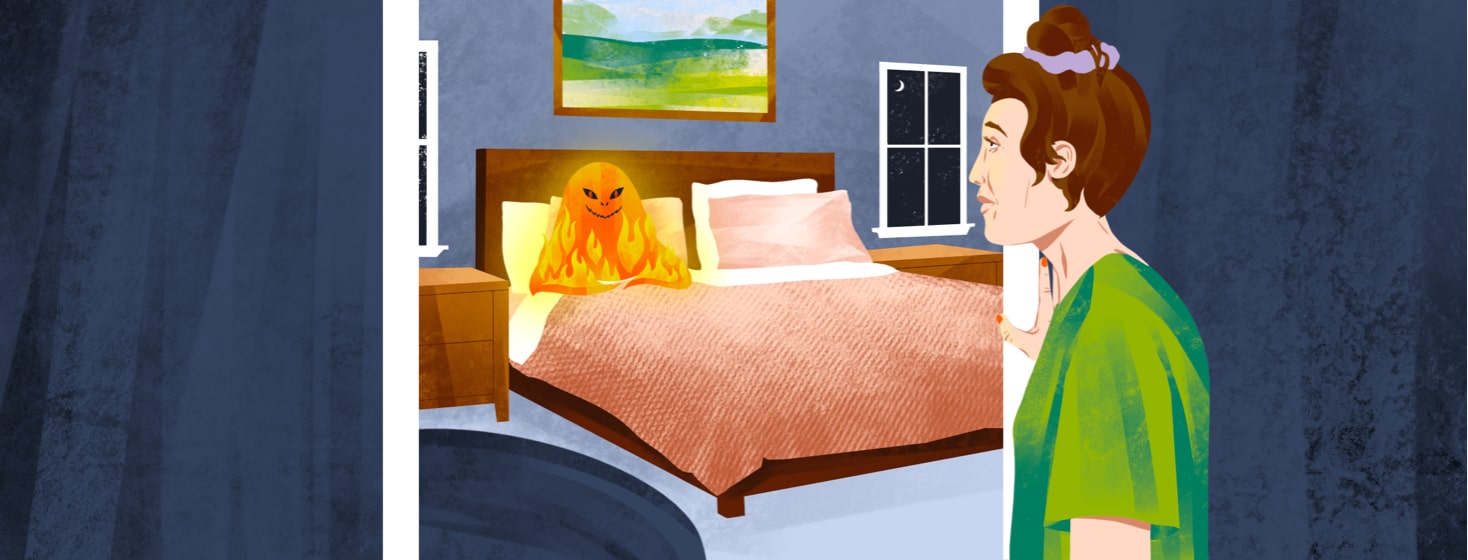The Day My Morning IBS Started Happening At Night
Sometimes, strange things happen for no apparent reason. Like when my morning IBS (that’s been haunting me for years) suddenly disappeared, only to get replaced by episodes at night.
Morning IBS and I have a history
My morning IBS and I go way back. In fact, my first serious relationship with IBS started in the morning.
I will never forget how my world suddenly got turned upside down when I started getting terrible symptoms as soon as I arrived at work. How I couldn’t concentrate on anything because I was constantly going to the bathroom. The pain, embarrassment, and misery that accompanied my first IBS flares. Always in the morning.
The relationship didn’t end there. But we figured out a common ground somehow.
I started getting up super early so I could have my morning IBS flare at home. That worked better, but it wasn’t easy by any means.
My whole life revolves around morning IBS
I barely remember what my life was like before IBS happened. I know that I was a morning person, though. The kind who loves getting up early and getting everything done before noon. My brain doesn’t function very well in the evening, so I always studied and worked at the beginning of the day.
With IBS, everything changed. The illness had a personal vendetta against me getting up early, and it made that very clear. So, I stopped being a morning person.
Getting up as late as possible, never leaving the house before 11 am, working in the late afternoon became my new normal.
For years and years, I avoided making any appointments in the morning. While traveling, I always made sure that the hotel did not require me to leave early. Breakfast ceased to exist, and I almost forgot what it looked like to eat before lunch. Basically, mornings were reserved for IBS, and IBS only.
When hormones are at work
Then, hormonal changes happened. I got pregnant, had a baby. And I struggled with morning IBS so much.
Mornings aren’t easy as a parent anyway, and they’re incredibly hard as a parent with morning IBS. But I managed, somehow. I tried getting up before my baby, stopped eating later in the evening, and asked my fiancé to help me before leaving for work. It was okay until my baby turned three months old.
At that point, things started changing. I mean, not only IBS-wise. It’s normal for hair loss and things like that to start 3 months postpartum. But for me, my morning flares suddenly stopped.
I didn’t even realize it at first. Since I had gotten better at managing morning IBS with a baby, I thought that I just had a good day. Then two. Then three.
After a week, breakfast became a thing again. I started working out during the first nap, instead of spending it in the bathroom. I got so much done before noon again.
With IBS, there’s always a surprise
Unfortunately, the disappearance of morning IBS flares didn’t come without a price to pay. The moment I was able to start my day on a good note, my nights started being pretty rough.
Every day, in the middle of our bedtime routine for the little one, I start feeling a bit sick. Once the baby is sleeping, it only gets worse. Now it’s at the point where I’m unable to go to bed early because I have to wait until my IBS flare stops. Or gets somewhat better, at least.
There’s just no winning with IBS. If one thing improves, another one gets worse.
I’m not sure if this change is temporary or if it’s here to stay. But for now, I need to figure out how to deal with my new IBS flares at night. Do I just skip dinner? Do I now HAVE to stay up late?
If anyone else has recurrent IBS episodes at night, I’d love to know what you do to make them better!

Join the conversation